WordPress Hosting Options: SiteGround vs. WP Engine

Introduction
WordPress offers various hosting options and we've compared two: Siteground, a simple option, and WPEngine, a relatively high-end option. The comparison involves pricing and features like site setup, multiple environments, site migration, and more. We've been able to achieve a proper comparison after the migration of a site from Siteground to WPEngine. Read further to dive deep into the hosting platforms comparison.
As a web development firm that launches lots of sites, we pay particular attention to all aspects of DevOps. This would include the ease of spinning up dev-stage-production environments and the ease of transferring content between them. It also includes the ease of integration with code management tools such as Git, Beanstalk and BitBucket. During the site launch phase, the emphasis shifts to DNS mapping, backups, restores, enabling security options, CDN and caching.
If we assume for a start that pricing is a good indication of the sophistication of the offering, we can categorize the WordPress hosting options into:
- Basic Offerings: Siteground, Bluehost, Greengeeks (The price here is typically between $5-$50/month)
- Advanced Offerings: Kinsta, WPEngine, Pantheon (The price here is typically between $30 to enterprise offerings that can be as much as $1500/month)
In a recent project, we started by hosting the site on SiteGround (basic offering) and eventually the client grew out of it and moved onto WPEngine (advanced offering). This experience provided us with a unique opportunity to do an apples-to-apples comparison.
Siteground offers three packages and we had tried out the GrowBig package:
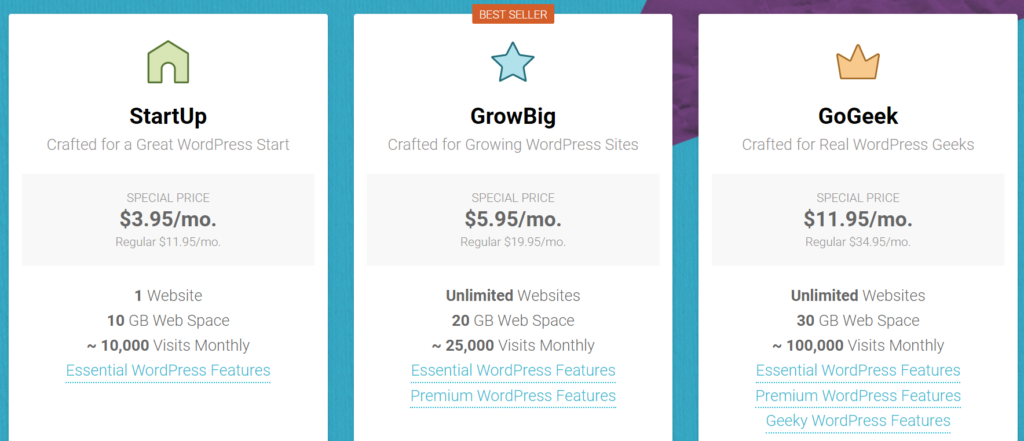
The WPEngine package we used was the Basic Package :
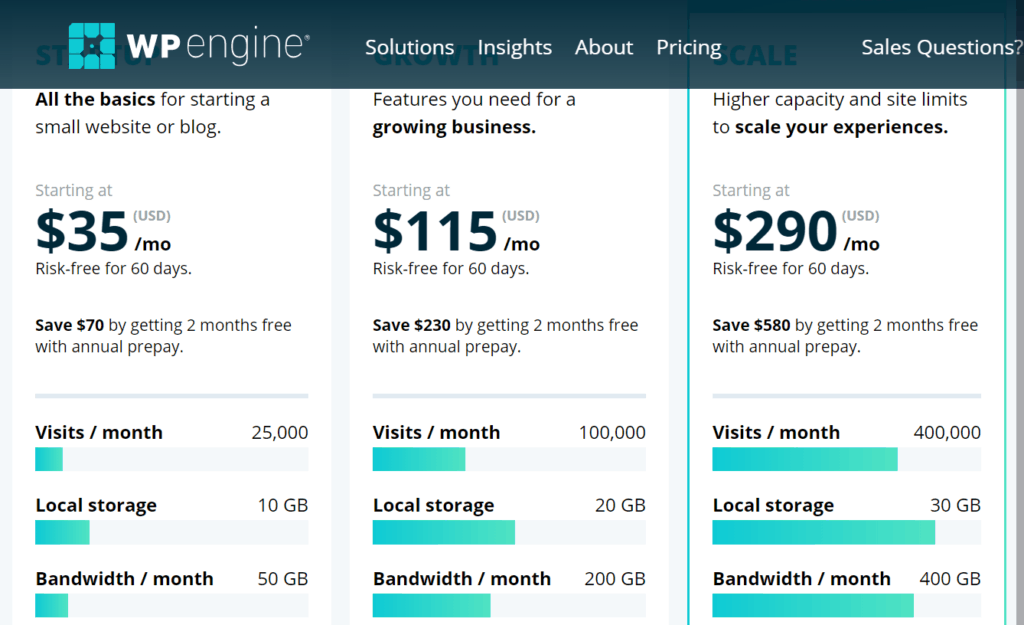
Site Setup
You can get started on WPEngine without ever needing to register a domain (you can always connect it later), while on Siteground, you need a domain first to get started.

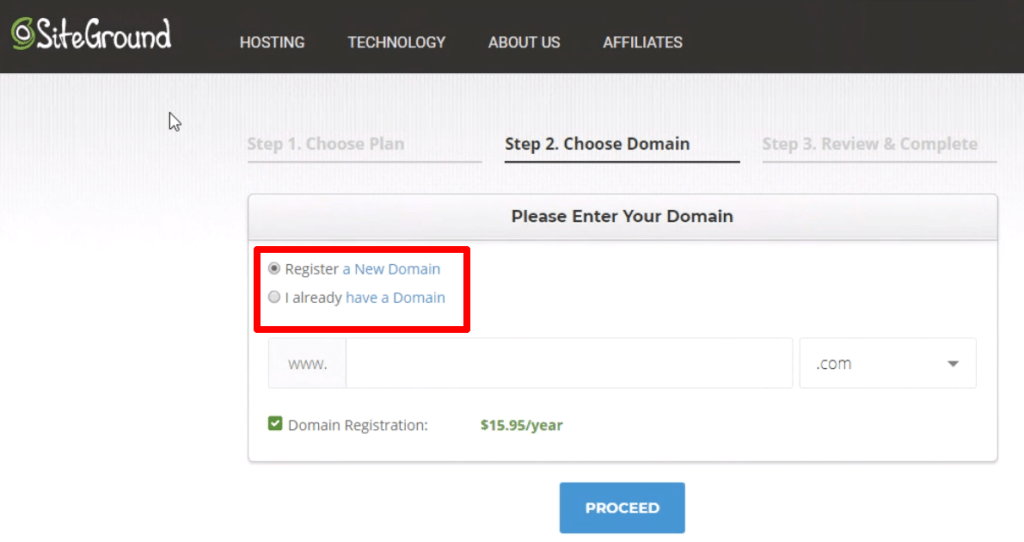
Multiple Environments
WPEngine launches instantaneously with Dev-Stage-Prod environments while SiteGround needs a good amount of setup to get the Stage environment operational. It doesn’t offer a dev environment.

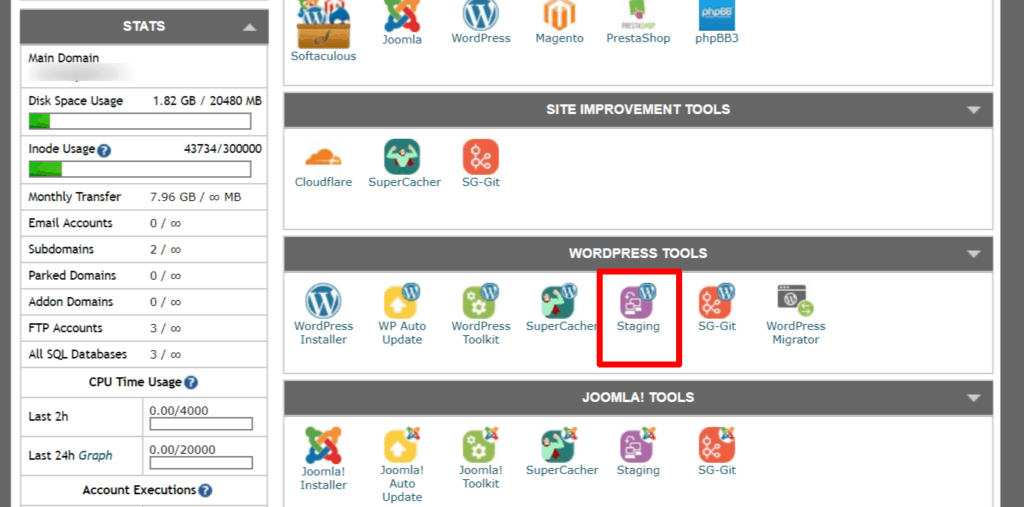
Backup and Restore
Both wordpress hosting products offer the ability to backup and restore versions of the site.
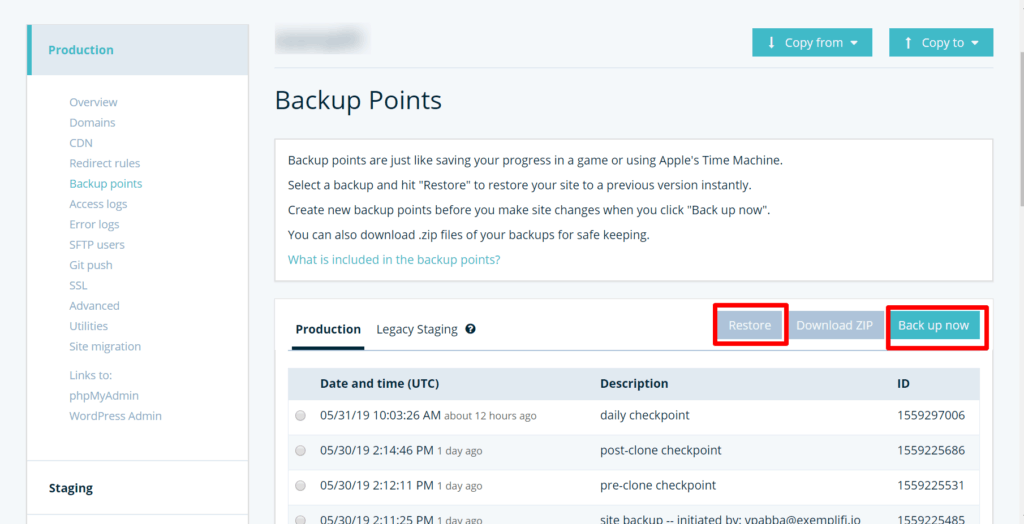
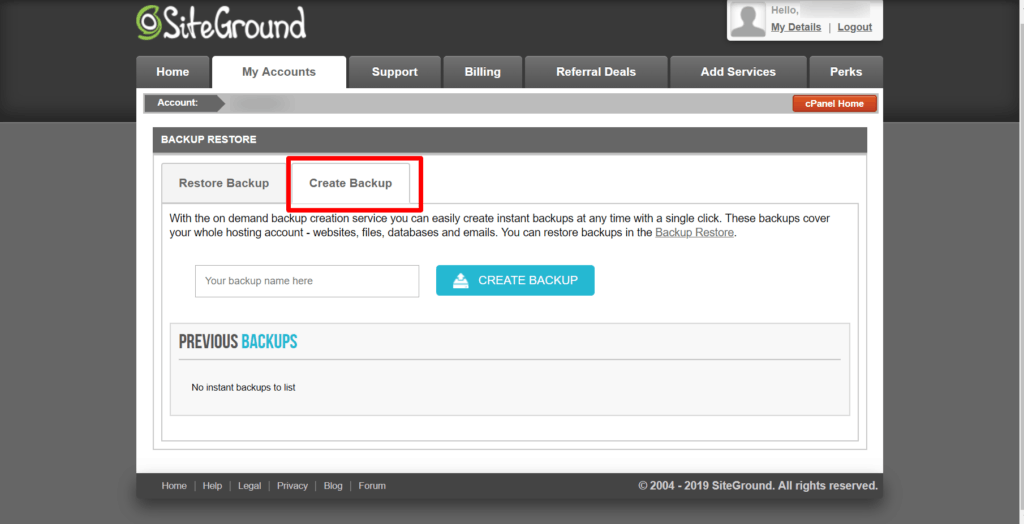
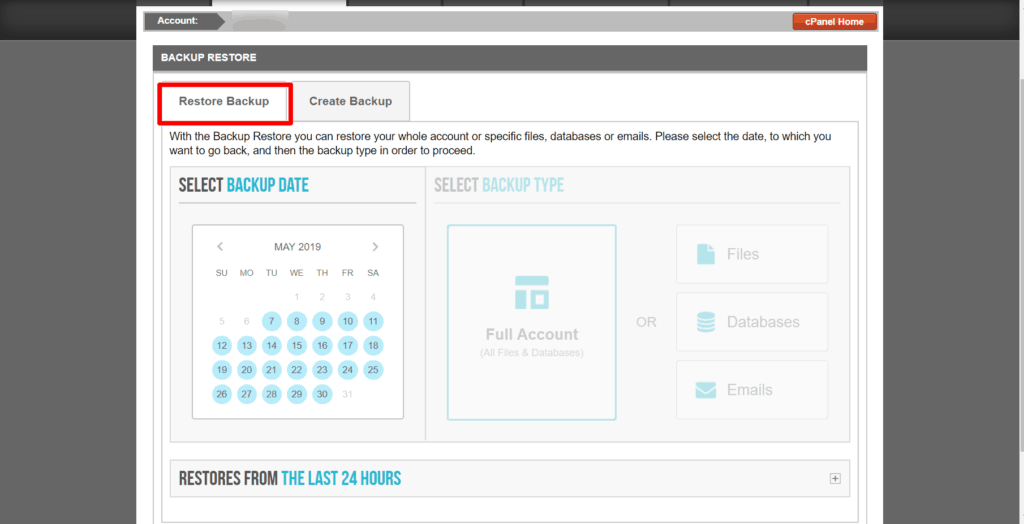
The key difference however, lies in the ease with which the restored sites can be transferred across environments. For eg. in WPEngine, you can restore an instance of the production environment and make that the live version of the site. In addition, you can transfer it easily to the staging instance and make that the live version there as well. This kind of ability is lacking in SiteGround — and involves more manual effort.
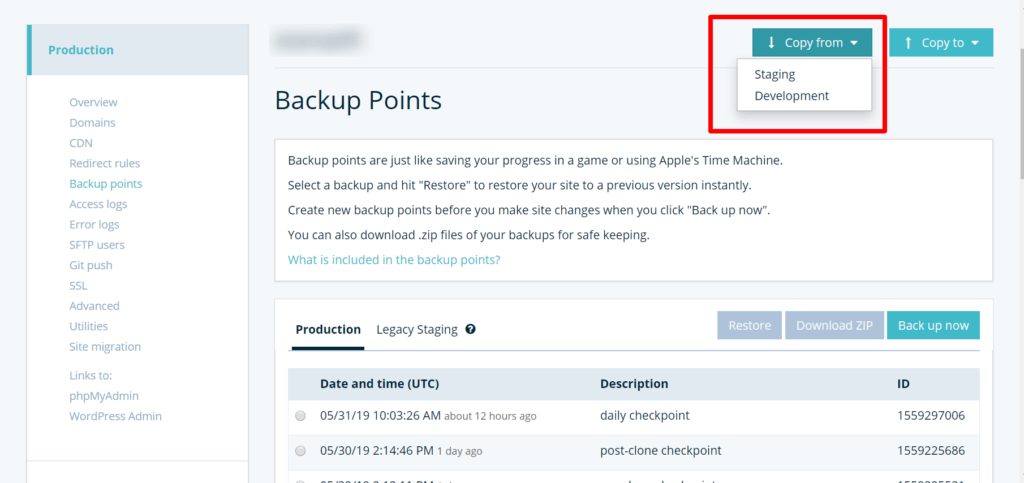
Two-way transfer of Sites
During the launch phase of a site build project, it is common to have to backup the production instance to staging instance. So, instead of a one-way flow from stage -> production, we do have the frequent production -> stage flows as well. To accomplish this, SiteGround has to create multiple staging instances each of which has its own URL. WPEngine handles this all within a single stage instance which we find is more convenient.
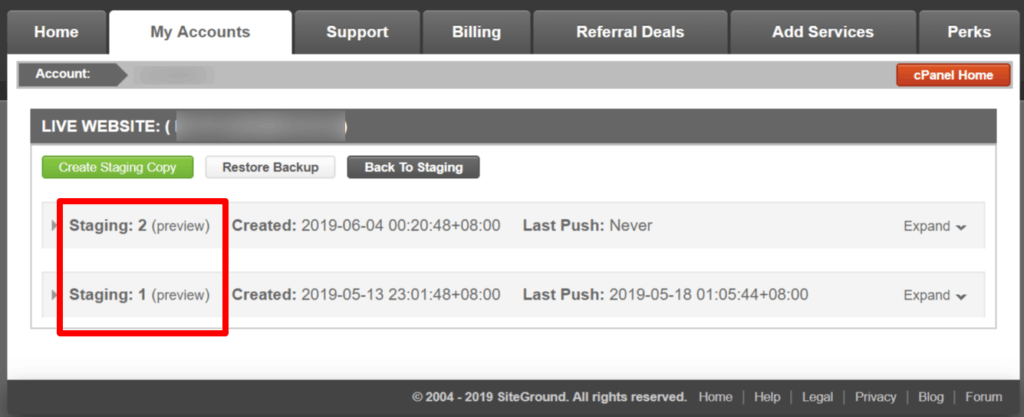
Site Migration
When doing a site refresh, the ease of site migration is quite important. To test this out, we initially installed a site on Pantheon and then migrated it to SiteGround and WPEngine. It took us quite a bit more time and coordination with the SiteGround support team to migrate the site to their infrastructure. The process with WPEngine was a matter of a few minutes.
Another key difference appears to be that WPEngine uses the premier migration product — BlogVault — while Siteground seems to use an in-house developed solution (or atleast it seems to us).

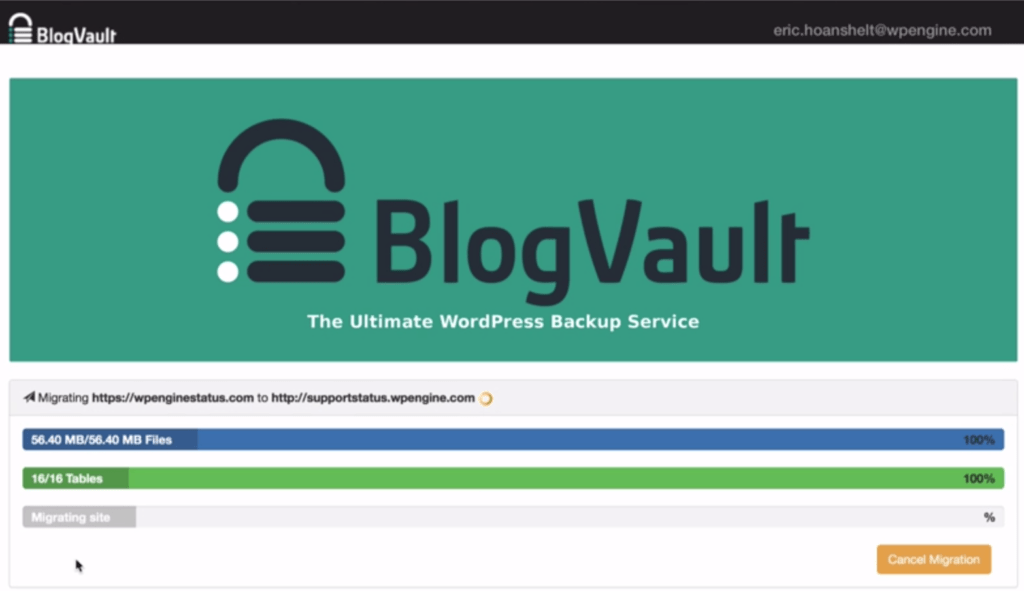
Source Code Integration
Finally, integration with source code management! Any meaningful enterprise implementation will leverage robust tools such as Git, BitBucket, Beanstalk and others. SiteGround supports Git integration but this is more in a batch mode. WPEngine does a more robust job at continuous integration and continuous deployment. It also better supports enterprise-class products such as BitBucket and Beanstalk.
Summary
We compared the DevOps features of two WordPress hosting choices: SiteGround (basic offering) and WPEngine (advanced offering). Needless to say, you get what you pay for. For enterprise implementations, attention to DevOps tools and processes can significantly improve your organization’s agility and we hope this article has been helpful in articulating the relevant dimensions to the DevOps problem.
For further reading, you can read our post that compares Acquia Cloud (Drupal hosting) with WP Engine.